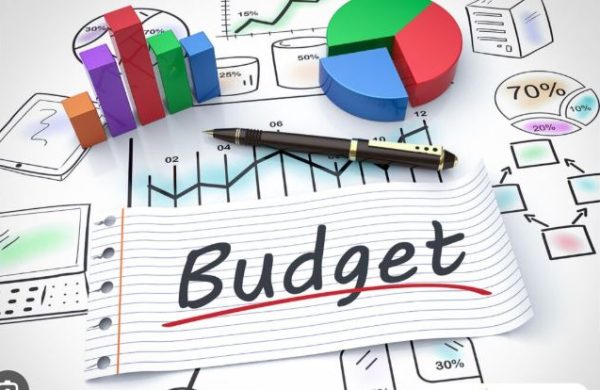We must reduce deficit for sound budget management
- Update Time : Wednesday, May 14, 2025

—Md. Mehdi Hasan Khan—
Practically, in budget preparation of government accounts, three methods are commonly used: balanced, deficit and surplus budget. When government spending for a given fiscal year equals anticipated government revenue, the budget is considered balanced. This method is typically followed by economically sound countries such as Germany, South Korea, and Switzerland. The balanced budget is also referred to as a zero-based budget, where all expenses must be justified for each new period and are analysed for their needs and costs. On the other hand, a surplus budget occurs when government revenue exceeds expenditure. It is a rare occurrence. However, such budgets are occasionally observed in resource-rich countries such as Kuwait, Qatar, Oman, Denmark, Brunei and the UAE. But a budget deficit occurs when government expenses exceed revenue, and budget deficits affect the national debt and revenue collection by the tax authority. A budget deficit can lead to higher levels of borrowing, higher interest payments, and lower reinvestment, which will result in lower revenue during the following year. Economist John Maynard Keynes strongly favoured a deficit budget during the Great Depression of the 1930s. He argued and advocated for government intervention to curb unemployment and economic recession. He also debated that increased government spending was necessary to decrease unemployment, even if it meant a budget deficit.
Bangladesh, like many other developing countries, is experiencing a deficit budget due to limited fiscal resources mobilisation from internal sources. Besides, many industrialised countries also face similar long-term budgetary challenges and have run persistently large budget deficits in recent decades. These large and persistent budget deficits have generated considerable concern. There is a widespread perception that they reduce growth, and could lead to a crisis if they continue for long or become too large. Thus, it is important to examine the sources and effects of budget deficits.
Taking the last 30-years’ total budget and deficit figures for Bangladesh from 1995 to 2024, a steady increase was found. The budget has grown from Tk 209.48 billion in 1995 to Tk 7,617.85 billion in 2024 (Budget data MoF). Similarly, the deficit also expanded significantly, from Tk 7.84 billion in 1995 to Tk 2,617.85 billion in 2024, indicating higher expenditure compared to revenue generation. It is also noticeable that, every five to eight years, the budget size more than doubled.
Bangladesh’s budget has been experiencing a substantial deficit since the very beginning. The data between 1995 and 2024 also reflects this pattern on a year-to-year basis. Between 1995 and 2000, the largest deficit occurred in 1998 and the trend continued, with the deficit in 2024 marking a new peak.
When viewed from another perspective, the deficit as a percentage of the total budget from 1995 to 2024 highlights significant fluctuations, reflecting varying fiscal challenges over the years. The early years (1995-2000) show relatively lower deficits, the period from 2002 to 2010 exhibits moderate but volatile deficits, averaging around 30 percent, suggesting ongoing budgetary constraints. A gradual decline is observed from 2011 to 2019, with deficits stabilising below 30 percent. On the other hand, post-2020, the deficit accelerated again, peaking at 36.14 percent in 2023 before slightly decreasing in 2024.
Bangladesh’s budget largely relied on deficit due to rising operating expenditures, import dependency, infrastructure development, and corruption-induced administrative inefficiencies. Consequently, the deficit-to-total-budget ratio remains high. However, despite this significant budgetary gap, the deficit-to-GDP ratio remains within the standard threshold of five percent. To offset this shortfall, the government borrows from both domestic and foreign sources. As a result, Bangladesh’s vicious cycle of national debt has been accelerating year after year. Ironically, it is claimed that our deficit budget-to-GDP ratio remains within the standard level of five percent; however, there are concerns about the credibility of this figure due to possible exaggeration in GDP calculations (White Paper on Bangladesh Economy Report-2024). In reality, the actual deficit budget-to-GDP ratio is likely higher than the reported level.
Bangladesh should prudently shift towards a more balanced budget approach, incorporating zero-based budgeting to ensure maximum value from public funds. Furthermore, project selection, financing, and implementation must be administered with due diligence. Aside from operating expenses, capital expenditures under project financing should align with global cost competitiveness and incorporate appropriate technical expertise.
In 1925, US President Calvin Coolidge said, “I favor the policy of economy, not because I wish to save money, but because I wish to save people. The men and women of this country who toil are the ones who bear the cost of the Government. Every dollar that we carelessly waste means that their life will be so much the more meager. Every dollar we prudently save means that their life will be so much the more abundant. Economy is idealism in its more practical form.” We strongly believe our policymakers will act accordingly.
________________________________________
Md. Mehdi Hasan Khan is pursuing Certified Internal Auditing (CIA) programme at Institute of Internal Auditors.



















